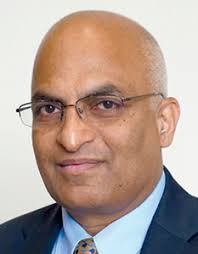Invited Talks

James Warren
Director, Materials Genome Program, Materials Measurement Laboratory, National Institute of Standards and Technology
Title: The Materials Genome Initiative and AI
Abstract: The application of AI to materials research, the focus of this
symposium, is central to the future success of the Materials Genome Initiative (MGI). In
this talk we will look back at the progress made by the MGI in the last decade, discuss
the connections to AI and data informatics, the challenges that remain for the MGI to
achieve its goals, and the US government’s strategy to address these challenges.
Bio: After receiving his Ph.D. in Theoretical Physics at the University of
California, Santa Barbara, in 1992, he took a position as a National Research Council
post-doc in the Metallurgy Division at NIST. In 1995, he co-founded the NIST Center for
Theoretical and Computational Materials Science, which he has directed since 2001. From
2005-2013, he was the Leader of the Thermodynamics and Kinetics Group. His research has
been broadly concerned with developing both models of materials phenomena, and the tools
to enable the solution of these models. Specific foci over the years has included
solidification, pattern formation, grain structures, creep, diffusion, wetting, and
spreading in metals. In 2010-11, he was a part of the ad hoc committee within the Office
of Science and Technology Policy’s National Science and Technology Council (NSTC) that
crafted the founding whitepaper on the Administration’s Materials Genome Initiative
(MGI). Since 2012, He has served as the Executive Secretary of the NSTC MGI
Subcommittee, coordinating inter-agency efforts to achieve the goals laid out in the
MGI.
Title: A new AI/ML framework for materials innovation
Abstract: A novel information gain-driven Bayesian AI/ML (artificial
intelligence/machine learning) framework is presented with the following main features:
(i) explicit consideration of the physics parameters as inputs (i.e., regressors) in the
formulation of process-structure-property (PSP) surrogate models needed to drive
materials improvement workflows; (ii) information gain-driven autonomous workflows for
training efficient AI/ML surrogates to otherwise computationally expensive physics-based
simulations; (iii) versatile feature engineering for multiscale material internal
structure using the formalism of n-point spatial correlations; (iv) amenable to a broad
suite of surrogate model building approaches (including Gaussian Process regression
(GPR), convolutional neural networks (CNN)); and (v) Markov chain Monte Carlo
(MCMC)-based computation of posteriors for physics parameters using all available
experimental observations (usually disparate and sparse). The benefits of this framework
in supporting accelerated design and development of heterogeneous materials will be
demonstrated using multiple case studies.
Bio: He is a Regents Professor and Rae S. and Frank H. Neely Chair Professor in
the George W. Woodruff School of Mechanical Engineering with joint appointments in the
School of Computational Science and Engineering and the School of Materials Science and
Engineering at Georgia Institute of Technology, Georgia, USA. Surya’s research efforts
have made seminal contributions to the fields of crystal plasticity, microstructure
design, and materials informatics. Surya has been elected a Fellow of ASM International,
TMS, and ASME. He has also been recognized with the Alexander von Humboldt Research
Award, the Vannever Bush Faculty Fellow, and the Khan International Award. He has
authored/co-authored 2 books, 8 book chapters, 2 edited volumes, and about 300 archival
journal articles. His research currently has a h-index of 86 (as per Google Scholar).
